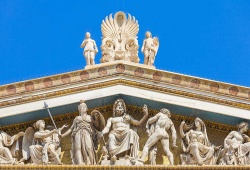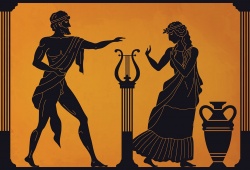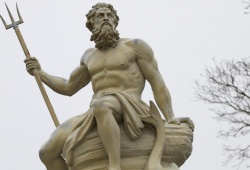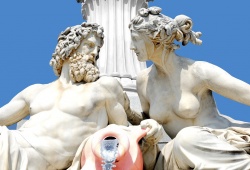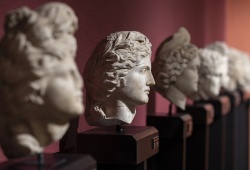What to Know About Greek Mythology and the Greek Gods
Greek mythology is a vast and complex system of beliefs and stories that have been passed down through generations. It is a fascinating subject that has captured the imagination of people for centuries. The Greek gods, in particular, have become iconic figures in popular culture, appearing in movies, books, and even video games. In this article, we will explore the basics of Greek mythology and the Greek gods.
The Origins of Greek Mythology
Greek mythology has its roots in ancient Greece, where it was an integral part of the culture and religion. The Greeks believed that the gods and goddesses controlled every aspect of life, from the weather to the outcome of battles. The stories of these gods and goddesses were passed down through generations through oral tradition.
The earliest known written works of Greek mythology are the epic poems, the Iliad and the Odyssey, written by Homer in the 8th century BCE. These poems tell the story of the Trojan War and the adventures of the hero Odysseus. They also introduce us to many of the key figures in Greek mythology, such as Zeus, Athena, and Poseidon.
The Greek Gods
The Greek gods were a complex group of deities who controlled various aspects of life. There were twelve major gods and goddesses, known as the Olympians, who lived on Mount Olympus. These gods were:
- Zeus: The king of the gods and god of thunder and lightning.
- Hera: The queen of the gods and goddess of marriage and childbirth.
- Poseidon: The god of the sea and earthquakes.
- Demeter: The goddess of agriculture and fertility.
- Athena: The goddess of wisdom, war, and crafts.
- Apollo: The god of music, poetry, prophecy, and healing.
- Artemis: The goddess of the hunt and wild animals.
- Ares: The god of war.
- Aphrodite: The goddess of love and beauty.
- Hephaestus: The god of fire and metalworking.
- Hermes: The messenger of the gods and god of commerce and thieves.
- Dionysus: The god of wine, parties, and festivals.
Each of the gods had a specific role to play in the world, and they often interacted with humans, sometimes helping them and other times causing them harm.
The Myths
Greek mythology is filled with stories, or myths, that explain the origins of the world and the actions of the gods. These myths often involve epic battles, tragic love stories, and heroic deeds. Some of the most famous myths include:
- The creation of the world by the god Chaos.
- The battle between the Titans and the Olympians for control of the universe.
- The story of Prometheus, who stole fire from the gods to give to humans.
- The tale of Orpheus and Eurydice, a tragic love story that ends in death.
- The story of Perseus, who slays the monster Medusa and saves a princess.
These myths have been retold countless times in literature, art, and popular culture.
The Legacy of Greek Mythology
Greek mythology has had a profound impact on Western culture. Its influence can be seen in everything from literature to art to politics. The stories of the Greek gods and heroes have inspired countless works of literature, from Shakespeare's plays to modern-day novels. They have also been depicted in countless works of art, from ancient Greek pottery to Renaissance paintings.
The legacy of Greek mythology can also be seen in our language. Many words and phrases in English have their roots in Greek mythology, such as "narcissism," which comes from the story of Narcissus, who fell in love with his own reflection.
In conclusion, Greek mythology and the Greek gods are an important part of Western culture. The stories of these gods and heroes have been passed down through generations and continue to inspire us today. Whether you are a fan of literature, art, or history, there is something in Greek mythology for everyone to enjoy.



